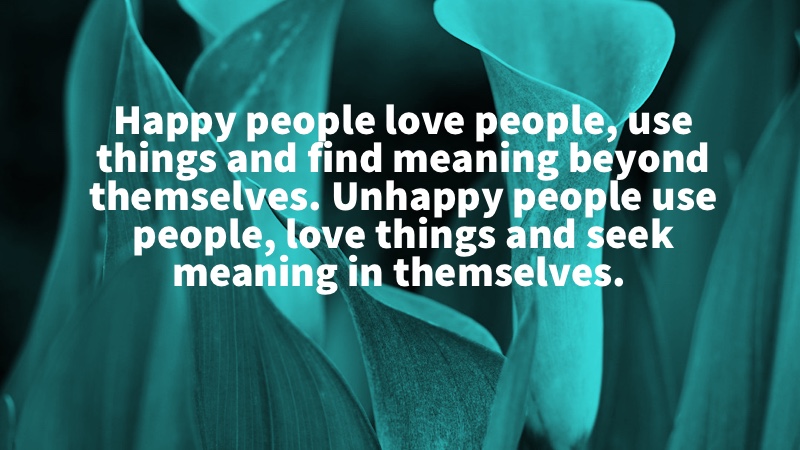The good life is built with good relationships.
Robert J. Waldinger
Über den Autor
Robert J. Waldinger is an American psychiatrist, psychoanalyst, and Zen priest who serves as the director of the Harvard Study of Adult Development, one of the longest-running studies of adult life ever conducted. Born in 1951, Waldinger graduated from Harvard College and Harvard Medical School, then completed his psychiatry residency at Massachusetts Mental Health Center.
His famous quote gained worldwide attention during his 2015 TED Talk titled “What Makes a Good Life? Lessons from the Longest Study on Happiness,” which has been viewed more than 40 million times, making it one of the most popular TED Talks ever.
The Harvard Study began in 1938 and has tracked the lives of 724 men for over 80 years, analyzing their health, careers, relationships, and overall well-being. Waldinger represents the fourth director of this groundbreaking research project.
What makes Waldinger particularly interesting is his dual life as both a scientist and a spiritual practitioner. He balances his role as a Harvard professor with his practice as an ordained Zen priest at the Boundless Way Zen temple in Newton, Massachusetts. This integration of scientific research and contemplative practice gives him a unique perspective on human happiness and fulfillment.
In an interview with The Washington Post, Waldinger mentioned that he often sees patients who achieve career success but feel empty personally. “They come to me wondering why they don’t feel happy when they’ve checked all the boxes society told them to check,” he said. This observation directly informed the wisdom contained in his now-famous quote.
Die Bedeutung des Zitats
This quote cuts through mountains of self-help advice to reveal a simple truth: our connections with others form the foundation of a fulfilling life. The Harvard Study that Waldinger directs found that close relationships, more than money or fame, keep people happy throughout their lives.
The research shows people with stronger social connections experienced less mental decline with age, maintained better physical health, and lived longer than people with fewer connections. Even more surprising, the level of satisfaction in relationships at age 50 proved a better predictor of physical health than cholesterol levels.
You can apply this wisdom through practical steps:
Schedule connection time. Put regular meet-ups with friends and family on your calendar with the same commitment you would give to work meetings. The key word here is “regular,” as sporadic contact makes relationships harder to maintain.
Practice real listening. During your next conversation, try asking follow-up questions instead of waiting for your turn to speak. Notice how this small change deepens connection.
Join groups based on interests. Find a book club, walking group, or volunteer organization where you’ll meet people who share your passions. Shared activities create natural bonds.
My friend Julia tried this approach after moving to a new city for work. Rather than focusing solely on her career, she joined a weekly cooking class and invited neighbors over for simple meals. Within a year, she had built a close social circle. When she later faced a health crisis, these same connections provided meals, rides to appointments, and emotional support that proved life-changing.
The quality of relationships matters more than quantity. Research participants who had conflict-filled relationships suffered more health problems than those with fewer but more supportive connections. One 80-year-old study participant told researchers: “When you ask what I’m most proud of, I’d say my children think I’ve been a good father.”
Marriage serves as another powerful example from the study. People in happy marriages reported that physical pain felt less intense, while those in unhappy marriages reported pain as magnified. As Waldinger puts it, good relationships literally protect our bodies and brains.
Social media creates an interesting challenge to the quote’s wisdom. We feel connected to hundreds of “friends” online yet loneliness rates continue to rise. True connection requires vulnerability and presence that screens often limit. The research suggests investing in face-to-face time over social media interactions.



Hinterlasse ein Feedback zu diesem Thema